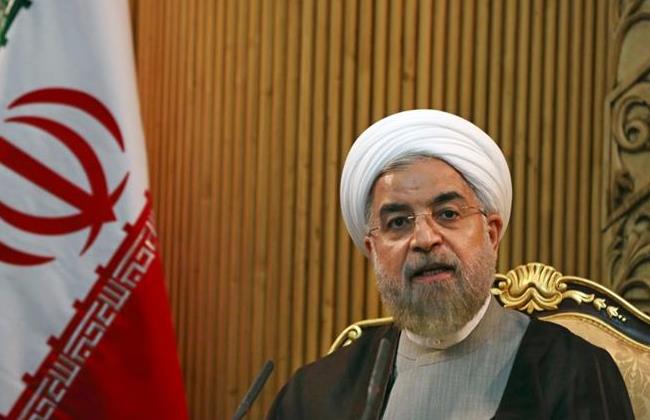Rowhani tests diplomatic waters: Is 2015 Iran’s year?
Monday, 5 January 2015
Camelia Entekhabi-Fard /Al Arabiya
With just over a month to go until the anniversary of the Iranian revolution, current President Hassan Rowani is making waves by calling for a referendum in the country.
Speaking at an economic conference in Tehran on Sunday January 4, the president shocked the nation by reminding them of an article in the Constitution which proposes a public referendum for setting up regulations on certain important issues.
Rowhani didn’t specify what issues he believes should be put to a public vote but his declaration fueled public debates over Iran’s nuclear talks, which are set to resume on January 15. At this stage, the public may need to get involved before the government reaches a comprehensive deal with Western powers. To mitigate the influence of hardliners who seem to be seeking to jeopardize the talks, perhaps Rowhani sought to disarm them. What better than public approval of the negotiations team?
Settling the file
The P5+1 ( Five permanent members of the U.N. security council plus Germany) agreed on November 23 in Vienna to extend the talks for another seven months until July 1st 2015, giving Iran more time to settle the file.
Iran claimed that within four months they would address all remaining questions and issues about their nuclear program. Iran’s foreign minister and chief negotiator Dr. Javad Zarif told the press that by the end of March the comprehensive deal could be reached.
The first referendum was held almost 36-years ago when the founder of the revolution Ayatollah Khomeini asked people to say yes or no to having an Islamic Republic instead of the monarchy. The other two semi referendums (one in the early days of the revolution and the other when Khomeini died 24 years ago) were over making changes to the constitution.
Public opinion
At this time if Rowhani is sincere about asking for the public’s opinion, the subject could not have been raised unless it was first consulted over with the Supreme Leader Ayatollah Ali Khamenei in advance.
Frequently insisting his support and confidence toward the nuclear negotiating team, Ayatollah Khamenei may also need public approval as a tool to wrap up the talks in the coming months.
In the past year-and-a- half, Rowhani has proved to be a pragmatic and moderate president rather than being a reformist as it was expected by his fellow supporters.
For Rowhani, the priority is to reverse Iran’s international isolation and improve the economy rather hammer away at domestic issues. The revolution’s history shows that hardliners and the Revolutionary Guard have the upper hand in domestic affairs.
Sorting out Iran’s nuclear issue can reduce the internal pressure and as far as Rowhani has come, the achievements could turn to ashes if the talks fail.
President Obama promised Iran a normal relationship if the nuclear file solved. The normalization of relations with the U.S. could be a great achievement for Rowhani’s government as a historical event and this event would transform Iran automatically no matter who has upper hand in domestic issues.
Rowhani and his nuclear team insist that all details of the talks have been screened by the supreme leader and if there is some under-the-table agreement that we are not aware of, these efforts can only signal Iran’s acceptance of Obama’s offer. However, the regime will need to bolster the move with public approval to allay the hardliners.
2015 could be a crucial and important year for Iran and the United States as they test the waters of diplomacy.
**Camelia Entekhabi-Fard is a journalist, news commentator and writer who grew up during the Iranian Revolution and wrote for leading reformist newspapers. She is also the author of Camelia: Save Yourself by Telling the Truth – A Memoir of Iran. She lives in New York City and Dubai. She can be found on Twitter: @CameliaFard






















